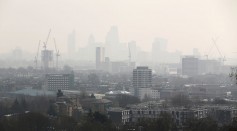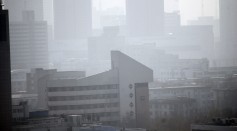air pollution

Startup Company Demonstrates How an Ammonia-Powered Tractor May Help Curb Air Pollution, Boost Crop Growth

ADHD in Children May Be Linked Between Exposure to Air Pollution and Risk of Developing the Condition

Air Pollution That We Cannot See? New Study Reveals Unhealthy Particles Floating in the Atmosphere

Poor Air Quality Leads to Increased COVID-19 Risk, UCLA Study Shows

Pollution Hotspots Spotted Using Satellite Imagery

Domestic Wood Burning Produces Three Times the Particle Pollution of Traffic in the UK

Air Pollution Can Affect Your Cognitive Skills Up to 60 Years Later

Air Pollution Could Increase the Risk of Developing Irreversible Sight Loss

South Asia's Worsening Air Pollution Is Causing Pregnancy Loss, Study

Air Pollution "Worsened" in Big Cities Due to Work From Home Workers, Science Claims

A New Study Finds Europe Losing More Than $190 Billion To Air Pollution Every Year

Low Exposure to Air Pollution Can Still Result in Dementia, Study Says

Researchers Around the World Share Atmospheric Changes During the Pandemic

Hot Weather Can Release Air Pollutants from Asphalt Road and Roof Coverings, Study
Most Popular

AI Revolution in Medical Education: Transforming How Healthcare Professionals Learn

Exploring Life Beyond Earth: Study Claims Other Planets Could Be Suitable for Alien Life

China’s Tiangong Space Station to Expand Its Capabilities With New Modules

Out of Office, Not Out of Mind: Planning for Employee Holiday Absences






